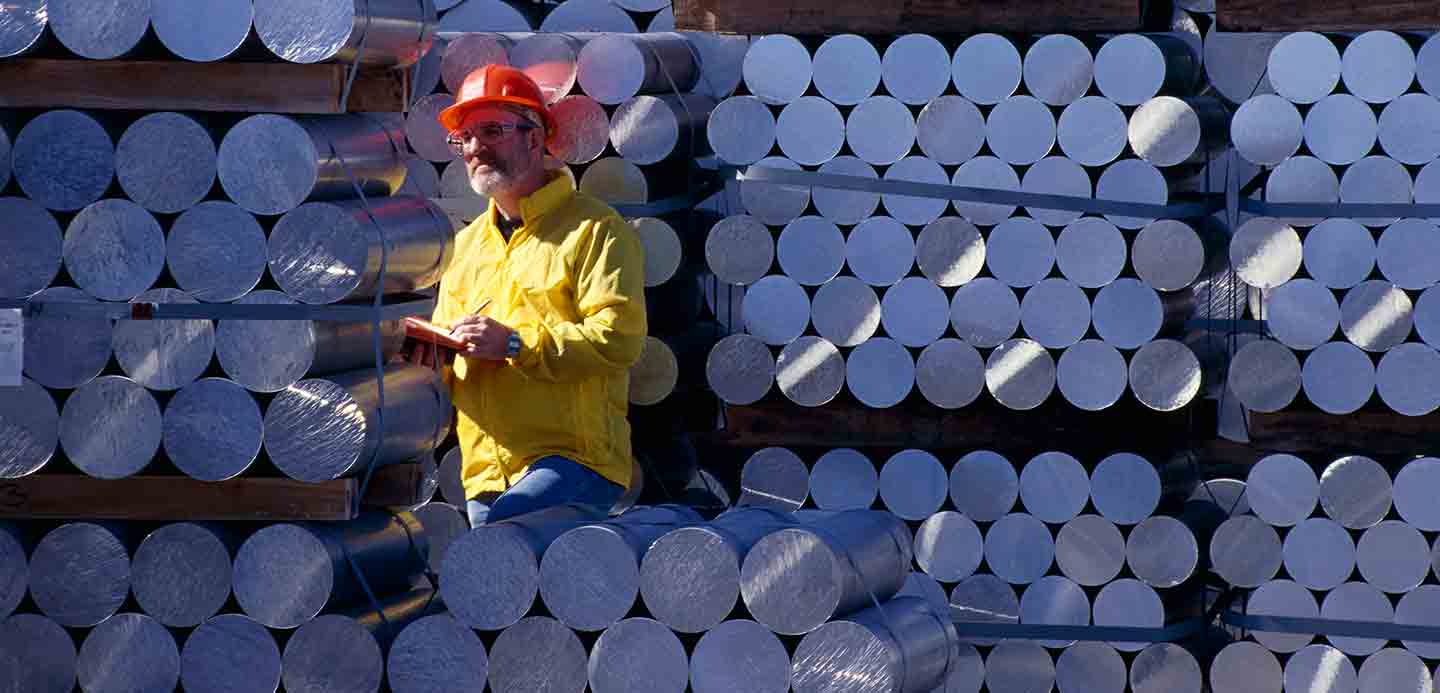- Article

- Sustainability
- Sustainable Supply Chain
Raising the bar for supply chain sustainability in Asia
A growing focus on sustainability is reshaping supply chains across Asia Pacific. As global brands respond to pressure from consumers and regulators, corporate sustainability is becoming key to their choice of suppliers. In many sectors, manufacturers in Asia Pacific increasingly need to report their performance on sustainability metrics before they can access global markets: for example, a new law effective from 30 December 2024 will require any business shipping agricultural products including palm oil, coffee and rubber to the European Union to prove they are deforestation-free.¹
Regulators in Asia Pacific are also imposing tougher requirements: in Australia, for example, climate-related disclosures will soon become mandatory for thousands of companies, beginning in 2025.²
Raising the bar for sustainable supply chains presents new challenges for businesses in Asia. The opportunities, however, are compelling.
Businesses in Asia that can demonstrate strong performance on corporate sustainability have a distinct advantage in the global marketplace. A growing proportion of the world’s listed companies are disclosing their Scope 3 emissions (those produced by their suppliers or in the use of their products), giving them an incentive to deal with low-carbon suppliers. According to MSCI, nearly 42% of listed companies reported at least some of their Scope 3 emissions as of January 2024, a rise of nearly 17 percentage points over two years.³
Rising expectations
As a production hub for everything from clothes to chemicals, Asia Pacific has a key role to play in the decarbonisation of global supply chains. To capture the opportunity in sustainable supply chains, businesses in Asia need to be able to demonstrate strong performance on a variety of metrics , depending on the regulations affecting their customers. That presents a number of challenges, including:
- Data collection: Smaller suppliers, in particular, may not have dedicated resources to measuring and monitoring sustainability factors – especially around emissions. Increased scrutiny of indirect Scope 3 emissions present a particular hurdle due to the scarcity of data.
- Inconsistent standards: Businesses operating across Asia’s many discrete markets need to be aware of overlapping – or conflicting – requirements, for example around product labelling, employment practices and energy consumption. Manufacturers often need to meet different requirements for different customers and comply with different regulations, depending on the market they are supplying.
- Costs: Improvements on sustainability metrics require investment, eating into margins and diverting resources from other uses. Technological upgrades to industrial processes can be costly.
Investing in sustainable initiatives, however, can unlock significant benefits. By implementing more transparent, traceable, and environmentally-friendly supply chain practices, suppliers in Asia stand to gain a competitive edge in the global marketplace, as well as potential premium pricing for their products. They also benefit by future-proofing their operations against emerging sustainability regulations closer to home.
Access to credit is another important consideration. Because strong sustainability practices reduce risks in their networks, global buyers and financial institutions are often willing to extend credit on better terms.
HSBC has collaborated with US retailer Walmart since 2019 on a sustainable supply chain finance programme that offers suppliers better payment terms if they meet Walmart’s sustainability standards.⁴ This programme has been used to help the retail giant reduce its Scope 3 emissions by encouraging suppliers to reduce waste and improve energy efficiency.
Many other global businesses are taking a similar approach. Of the 23,000 companies that disclosed their emissions to global carbon tracker CDP in 2023, 41% reported engaging their suppliers on climate-related issues.⁵
How businesses are taking action
Leading businesses in Asia Pacific are leveraging technology and working with partners to enhance their sustainability performance.
Hirdaramani Group, a major apparel supplier to global brands, has invested in energy-efficient machinery and renewable energy, including rooftop solar systems, to reduce emissions across its manufacturing operations, and recently became the first Sri Lankan business with net zero targets verified by the Science-Based Targets initiative.⁶ The company’s commitment to credible sustainability targets has helped it expand its business and access finance: HSBC in 2023 supported Hirdaramani’s sustainable ambitions with a sustainability-linked trade loan.⁷
Businesses in Asia Pacific can also turn to technology and data platforms to measure and manage their sustainability performance. In Hong Kong, for example, HSBC has partnered with technology provider Diginex to help businesses streamline reporting processes⁸ while HSBC’s partnership with Singapore-based Univers aims to improve access to verifiable carbon data.⁹ In addition, we have also partnered with EcoVadis, a provider of comprehensive ESG assessments for businesses and their suppliers, to help companies that are looking to make further progress in their sustainability journey (though note that this partnership is only available in certain markets).¹⁰
Before businesses take these strategic steps or invest in new technologies, they need to understand how they measure up on sustainability metrics and identify risks and actions for improvement. As scrutiny of sustainability risks increases, businesses everywhere are under pressure to improve transparency in their supply chains. Forward-thinking businesses in Asia are well placed to turn this challenge into opportunity.
Today we finance a number of industries that significantly contribute to greenhouse gas emissions. We have a strategy to help our customers to reduce their emissions and to reduce our own. For more information visit www.hsbc.com/sustainability.
¹ https://green-business.ec.europa.eu/deforestation-regulation-implementation_en
² https://www.finance.gov.au/government/climate-action-government-operations/australian-government-emissions-reporting
³ https://www.msci-institute.com/wp-content/uploads/2024/04/NetZero-Tracker-April-cbr-en.pdf
⁴ https://www.business.us.hsbc.com/en/insights/sustainability/walmart-and-hsbc-establish-a-sustainable-supply-chain-finance-program
⁵ https://www.cdp.net/en/reports/downloads/7890
⁶ https://www.dailymirror.lk/print/business-news/Hirdaramanis-net-zero-Science-based-targets-approved-by-SBTi/273-292458
⁷ https://www.business.hsbc.lk/en-gb/campaigns/sustainability
⁸ http://www.diginex.com/hsbc
⁹ https://www.linkedin.com/posts/univers-intl_as-one-of-the-worlds-largest-banking-and-activity-7190545334530371584-zjZl?utm_source=share&utm_medium=member_desktop
¹⁰ https://www.about.hsbc.com.hk/news-and-media/hsbc-launches-sustainability-improvement-loan
The information contained on this website is provided for informational purposes only, and does not constitute an offer to sell or the solicitation of an offer to buy any products referenced. Eligibility criteria and T&Cs apply for the products referenced. Local country restrictions and limits may apply. Please speak with your HSBC representative for more information.
This document is prepared by The Hongkong and Shanghai Banking Corporation Limited (“HSBC”) and is for the exclusive use of the person to whom it is provided. It is intended for reference and illustrative purposes only. It does not constitute an offer or solicitation for, or advice or recommendation that you should enter into any transaction with HSBC or any of its subsidiaries or affiliates.
HSBC has based this Document on information obtained from sources it believes to be reliable but which it has not independently verified. All information contained in this Document (including without limitation, information about products, terms and conditions, pricing, forecasts, market influences and HSBC policy) is subject to change from time to time without any obligation on HSBC to give notice of such change to you.
HSBC makes no guarantee, representation or warranty and accepts no responsibility or liability for the contents of this Document and/or as to its accuracy or completeness and expressly disclaims any liability whatsoever for any loss howsoever arising from or in reliance upon the whole or any part of the contents of this Document to the maximum extent permitted by law. You are responsible for making your own evaluation about the products referred to in this document. HSBC recommends that before you make any decision or take any action that might affect you or your business, you consult with suitably qualified professional advisers to obtain the appropriate financial, legal, accounting, tax or other advice.
© Copyright. The Hongkong and Shanghai Banking Corporation Limited 2024, ALL RIGHTS RESERVED. No part of this publication may be reproduced, stored in a retrieval system, or transmitted, on any form or by any means, electronic, mechanical, photocopying, recording, or otherwise, without the prior written permission of HSBC.



